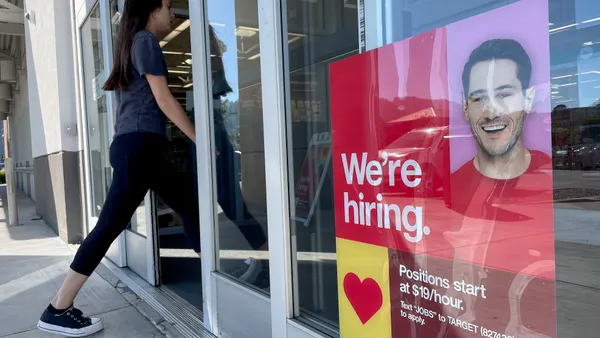The majority of leaders surveyed by General Assembly said entry-level employees remain unready for their jobs, despite perceiving them as more prepared than last year, according to a report the talent pipeline company released Sept. 23.
Only 22% of company leaders (VP level in the U.S.) surveyed said entry-level workers were very or completely prepared to do their jobs. Meanwhile, 47% said they were somewhat prepared, while 31% said they were hardly or not at all prepared.
Most leaders blame a lack of soft skills for that unpreparedness, General Assembly said, particularly at larger companies; 64% of leaders at companies with 1,000 or more workers said as much, compared to 41% of leaders at smaller companies.
Workers are in broad agreement, General Assembly noted, with 42% of workers surveyed blaming a lack of soft skills for unpreparedness.
As far as who is responsible for upskilling — and whether offered training is adequate — employers and employees disagree, according to the report.
The majority of leaders surveyed said training is mostly the responsibility of workers, with 6 in 10 saying employers hold at least some responsibility. But while 80% of leaders said they offer adequate training — more than the year prior — fewer workers than the year prior agreed.
Amid the growth and adoption of AI, employees may feel especially at a loss. Nearly 3 in 4 respondents to a Zety survey released earlier this year said AI will reduce entry-level corporate job opportunities in the next five years. And in the General Assembly survey, 83% of workers said they think AI can perform most entry-level jobs as well as a human could.
“Today’s entry-level employees systematically struggle with soft skills and job preparedness, while employers continue to blame employees themselves,” General Assembly CEO Daniele Grassi said in a statement. “As AI increasingly impacts the entry-level pipeline, employers have a responsibility to invest in training and upskilling of the next generation. If not, we’ll face a critical skills shortage in just a few years.”















